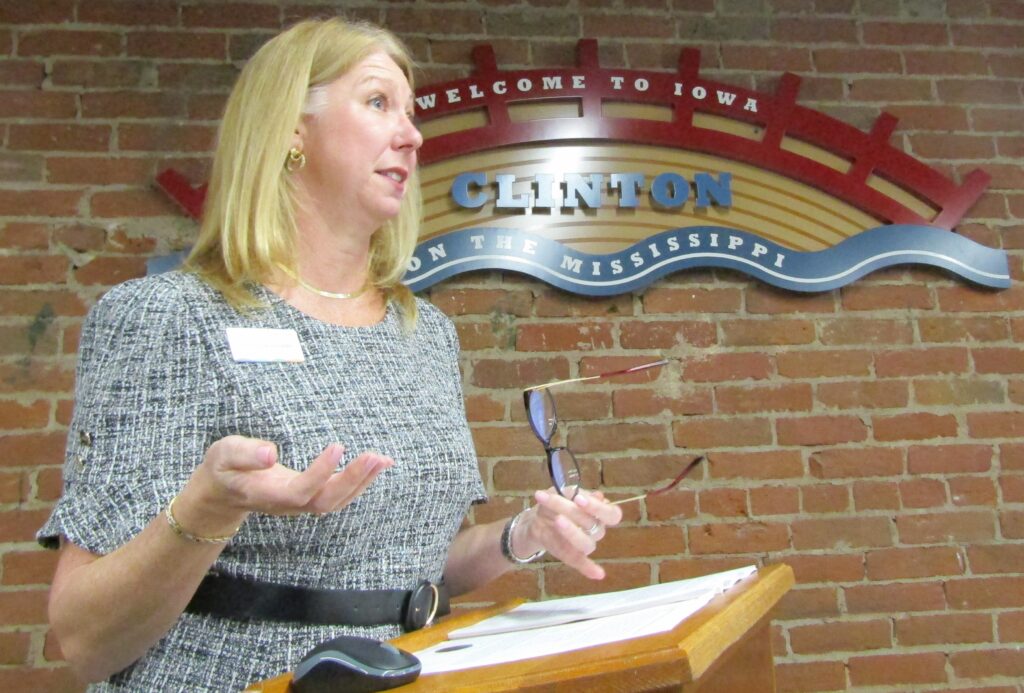Family-friendly holiday events planned across QC
QCBJ News Staff

Angie Rae Duncan, senior business development specialist with the First Children’s Finance group, presents the findings of a child care market analysis for the region on Tuesday, Dec. 19, at the Grow Clinton office in Clinton, Iowa. CREDIT DAVE THOMPSON
CLINTON, Iowa – “Child care is economic development.”
That’s the message from an official with a child care business advocacy group who presented the results of a child care market analysis for the region on Tuesday afternoon, Dec. 19, in the Grow Clinton office.
“Child care is economic development. It’s just as important as…

Get immediate, unlimited access to all subscriber content and much more.
Learn more in our subscriber FAQ.
Do you want to read and share this article without a paywall?
